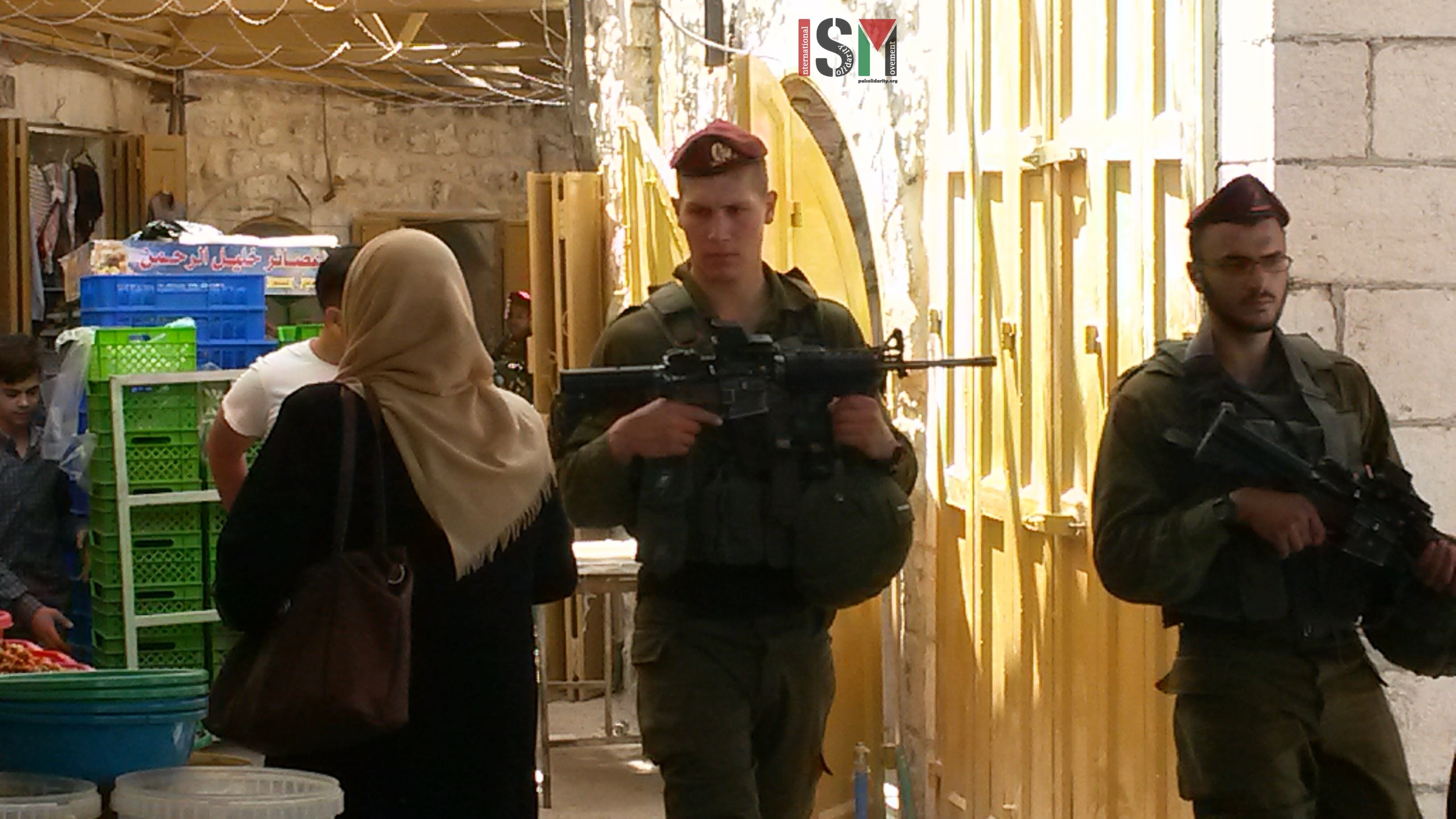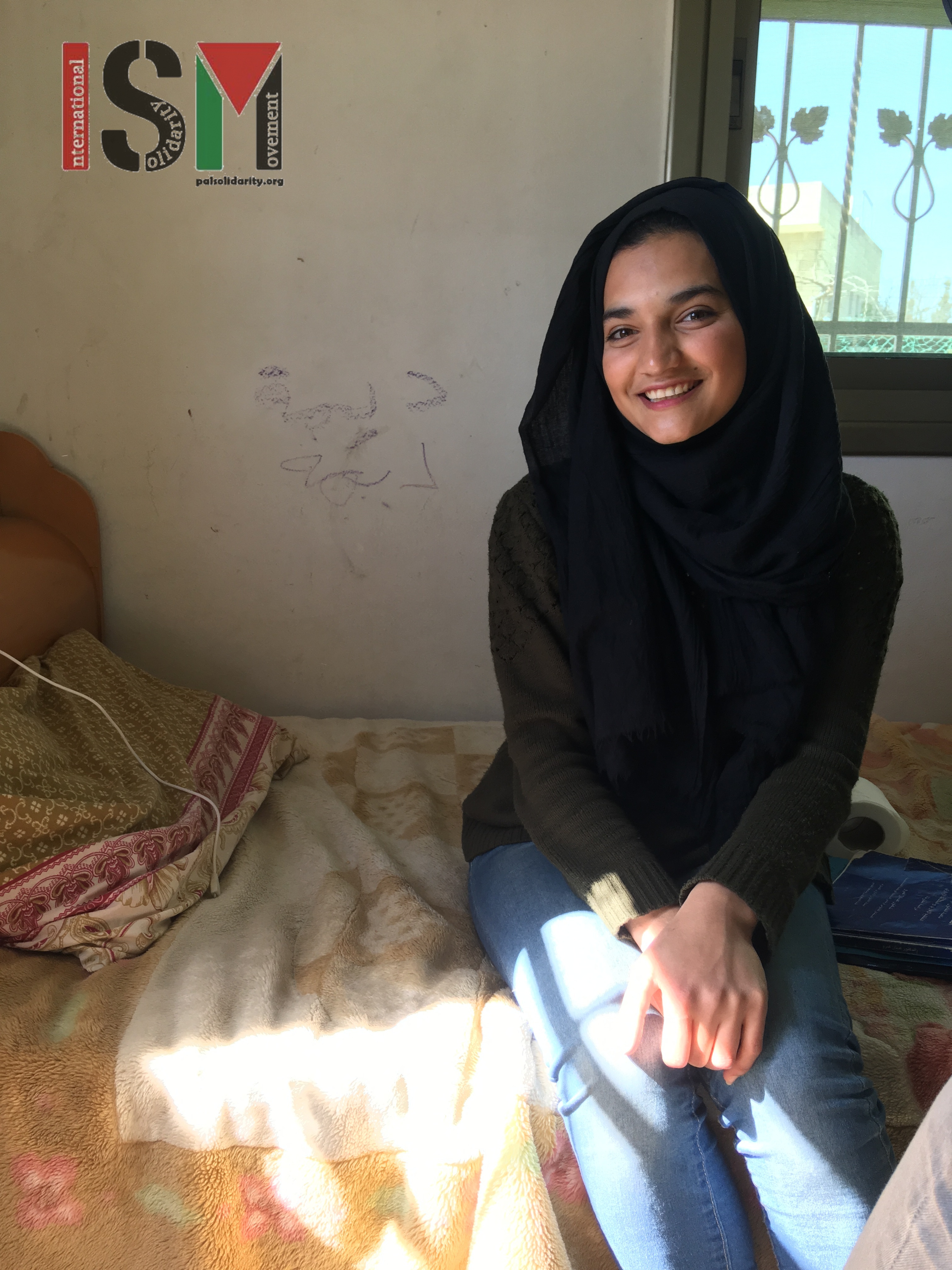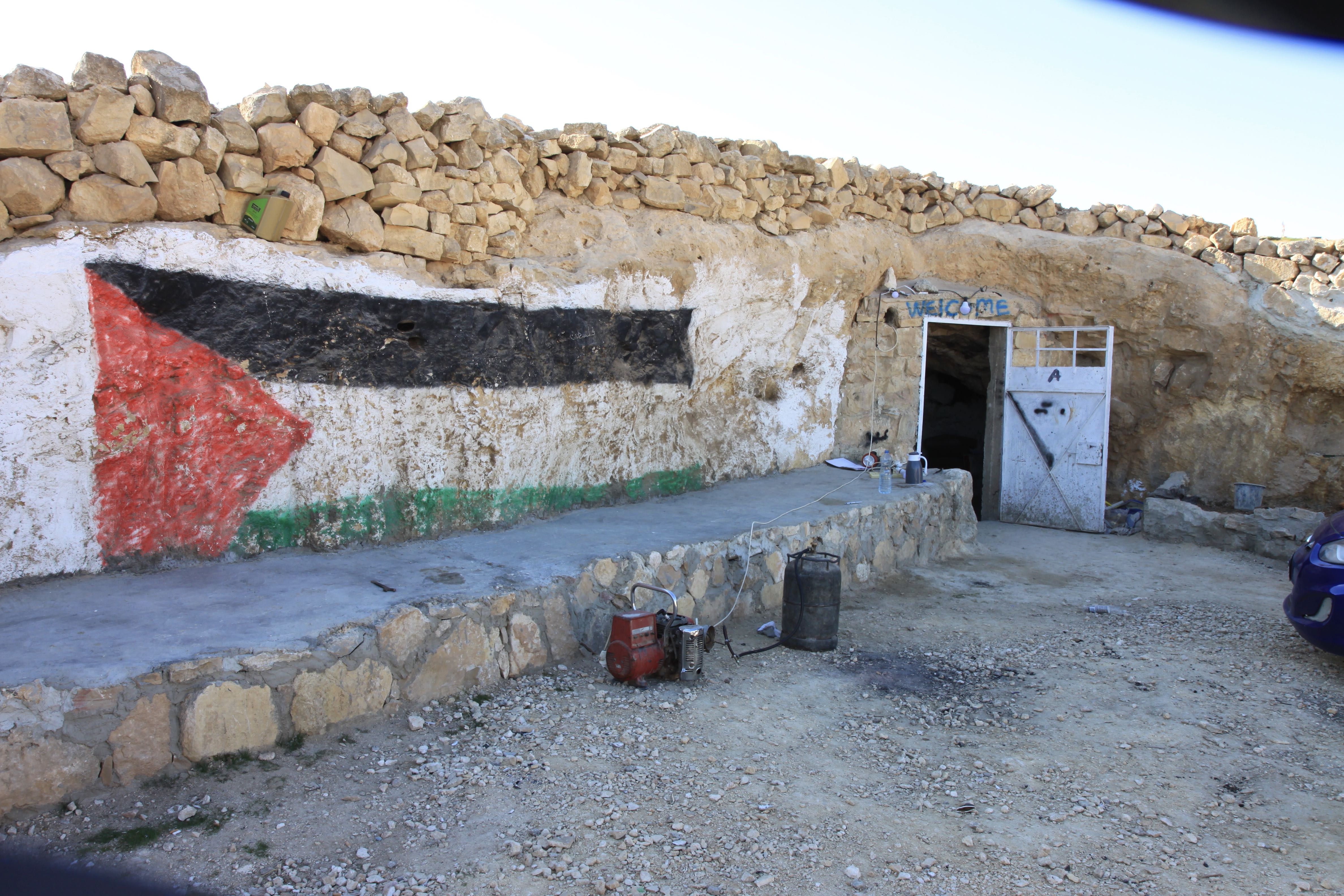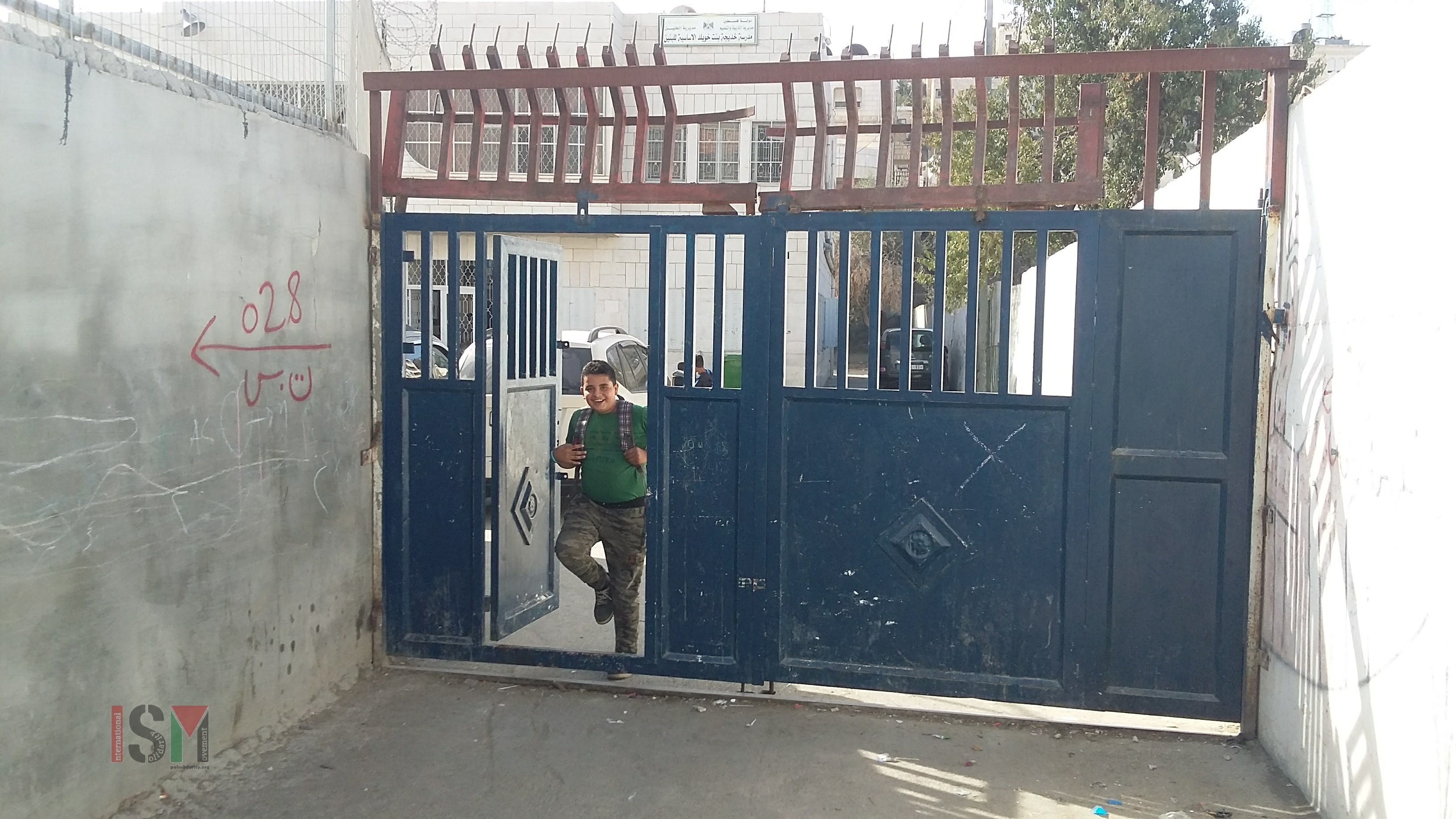Category: Journals
-

‘I am here, I resist’: ISM catches up with Nisreen Azzeh, who uses her artwork to resist against the brutal Israeli occupation of her homeland
4th June 2018 | International Solidarity Movement, Al-Khalil Team | Hebron, occupied Palestine Nisreen Azzeh’s house sits high up on a hill in the Tel Rumeida area of the occupied city of Hebron (al-Khalil is the Arabic name of the city) in the south of the West Bank. The way to her house is difficult…
-

Settler tourists given weekly armed escort through the streets of Al Khalil
Every Saturday, Zionist settler tours take place in the narrow alleys of the souq in Al Khalil’s (Hebron). These guided tours usually last for about an hour, and settlers are always accompanied by armed Israeli forces, intimidating local Palestinians who are trying to make a living by selling their goods in the market. The tours…
-

A recollection of Dima al-Wawi’s imprisonment and a remembrance of Hamza Zamara
18th March 2018 | International Solidarity Movement, al Khalil team | Occupied Palestine Two years ago Dima al-Wawi woke up for school feeling sick. Her throat hurt and her lymph nodes were swollen. Her parents were already out of the house, on their land that is split in two by the illegal settlement Karmi Zur…
-
The Battle Ground of the South Hebron Hills
28th December 2017 | International Solidarity Movement, al-Khalil team | al-Khalil, Hebron, occupied Palestine The South Hebron Hills is one of the battle zones against the ethnic cleansing of Palestine. This area stretches along the southern border of the West Bank. The villages of At-Tuwani, At-Tuba, Mufaqarah, and Sarura are located in the South Hebron…
-
Outside the school, inside al Khalil
19th December 2017 | International Solidarity Movement, al-Khalil team | al-Khalil, occupied Palestine Most of us are plenty used to absent minded scrolling our Facebook feeds. After all you can find just about anything you want and not have to read anything in particular. However, you can also come across a post saying that two…


